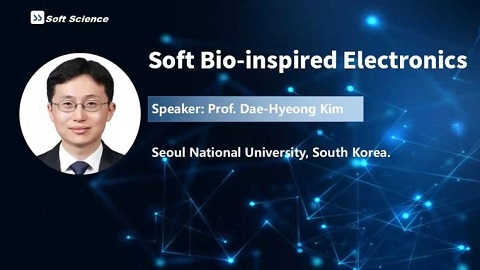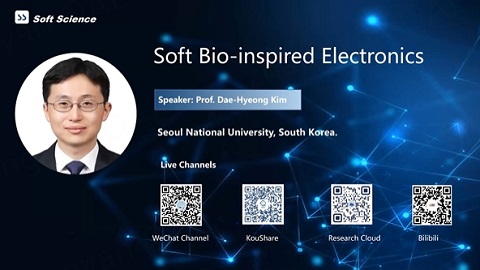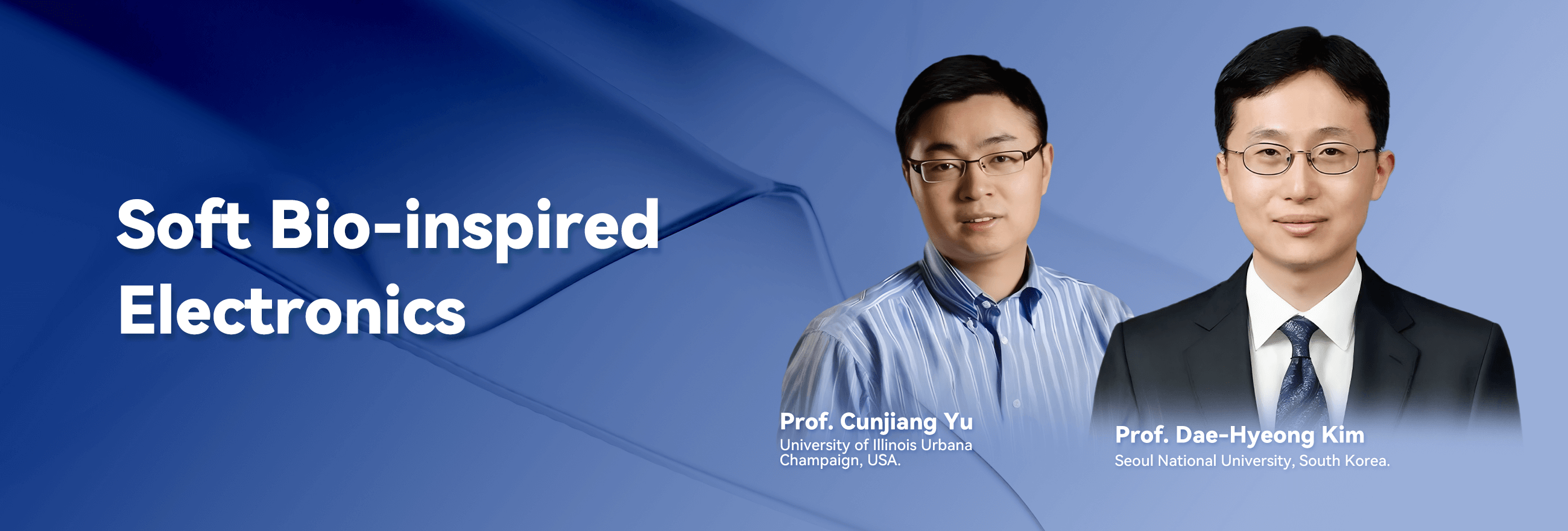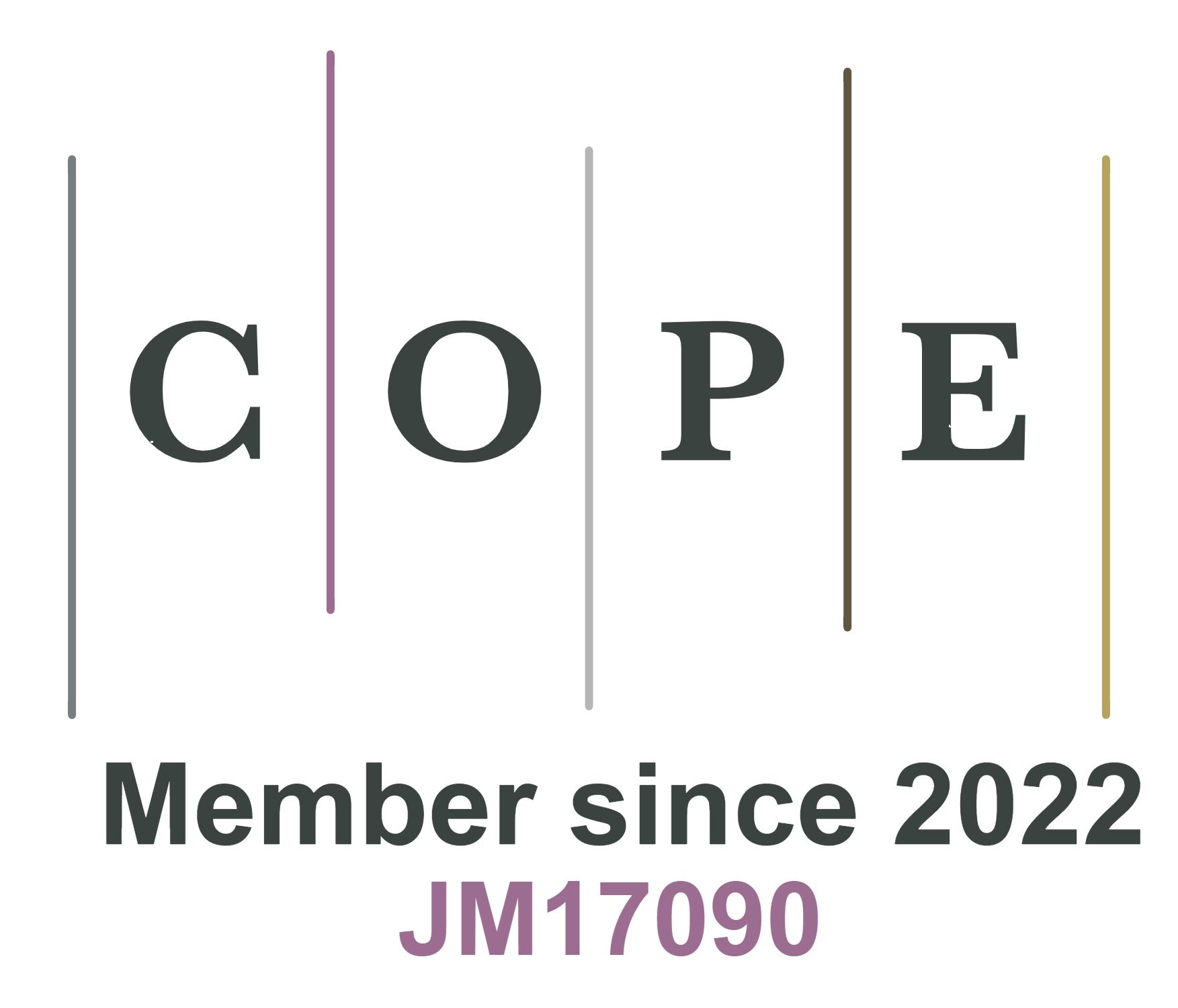Contents
Host

Dr. Cunjiang Yu
Materials Research Institute, Pennsylvania State University, University Park, PA, United States.
Dr. Cunjiang Yu is the Dorothy Quiggle Career Development Associate Professor of Engineering Science and Mechanics, Biomedical Engineering, and Materials Science and Engineering at Pennsylvania State University. His recent research concerns the fundamentals and applications of soft and curvy electronics.
Speaker

Prof. Dae-Hyeong Kim
Center for Nanoparticle Research, Institute for Basic Science, Seoul National University, Seoul, South Korea.
School of Chemical and Biological Engineering, Seoul National University, Seoul, South Korea.
School of Chemical and Biological Engineering, Seoul National University, Seoul, South Korea.
Dae-Hyeong Kim obtained B.S. and M.S. degree in Chemical Engineering from Seoul National University, Korea, in 2000 and 2002, respectively. He received his Ph. D. degree in Materials Science and Engineering from University of Illinois at Urbana Champaign in 2009. From 2009 to 2011, he was a post-doctoral research associate at University of Illinois. He joined Seoul National University in 2011 and is currently a professor in School of Chemical and Biological Engineering of Seoul National University. He also has been serving as an associate director of Center for Nanoparticle Research of Institute for Basic Science (IBS) from 2017. He has been focusing on the research of nanomaterials and deformable devices and their application to bio-integrated and bio-inspired electronics. He has been recognized with several awards including George Smith Award (2009), TR 35 award (2011), Hong Jin-ki Creative Award (2015), SCEJ Award (2016), and Korea Young Scientist Award (2017). He was also selected as one of the highly cited researchers by Clarivate Analytics in 2018, 2019, 2020, and 2021.
Abstract
Although recent advances in flexible and stretchable device technologies have resulted in meaningful progress to the goal of the high-performance skin-like electronics and artificial visions, significant challenges still exist in terms of novel materials and device designs. The mechanical mismatch between conventional rigid electronics and soft human skin oftentimes causes various issues, such as a low signal-to-noise ratio of skin-like sensors, long-term side effects on the tissue interfacing with the skin-like devices, and ineffective and imprecise feedback stimulations. The approach using intrinsically-soft conductive materials and their application to skin-like electronic devices have a potential to solve these issues, and thus functional nanomaterials and their composites with elastomers have been actively researched. Meanwhile, developing a miniaturized artificial vision, which enables fast object detection and amphibious imaging with wide field-of-view (FoV), is an important goal for mobile robotics including drones and unmanned vehicles. However, this goal is still challenging to achieve in consideration of bulky and heavy optical systems employed in the conventional imaging devices. Inspired by structural and functional features of the natural visions, therefore, novel miniaturized, wide FoV, and amphibious artificial visions using curved types of ultrathin and/or stretchable image sensor arrays have been developed. In this webinar, recent technological advances in such instrinsically soft skin-like electronics and bio-inspired artificial visions will be introduced.
Presentation

Topic: Prof. Dae-Hyeong Kim-Soft Bio-inspired Electronics
NaN

Topic: Free Discussion
NaN

Topic: Journal Introduction
NaN











